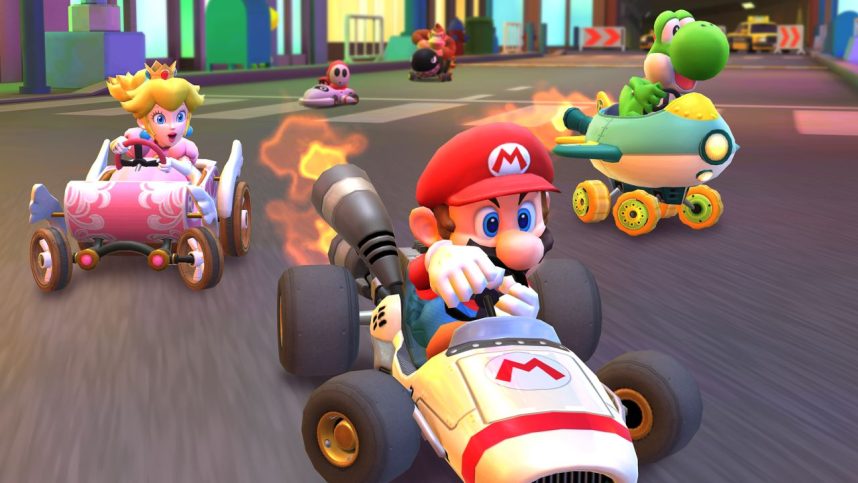[ad_1]
Posted on: May 23, 2023, 07:55h.
Last updated on: May 23, 2023, 08:10h.
Nintendo can add its name beside Electronic Arts and Sony as companies that have faced lawsuits over video game loot boxes. A lawsuit in Washington State accuses the gaming giant of offering illegal gambling in its Mario Kart Tour game for mobile devices, according to news outlet Axios.

In 2019, Mario Kart Journey was released for iOS and Android devices. It features a unique solution that allows players to invest money in order to activate Spotlight Pipes. These in-game options provided players with exclusive chances to obtain valuable in-game upgrades, much like the concept of a loot box in other video games.
In a September 2022 update, Nintendo removed Spotlight Pipes from the game. However, that’s not going to keep it from having to respond to the lawsuit.
Nintendo Offered “Immoral” Video Game
The plaintiff’s lawsuit against Nintendo accuses its use of microtransactions as unethical, as the game deliberately creates obstacles that can only be overcome by spending money. The plaintiff alleges that this strategy enables Nintendo to promote and promote gambling.
The convenient payment option of Spotlight Pipes microtransactions was a draw for those who engaged in them and was a way to lure gamers to download and play the game. Individuals may have even shelled out up to $170 – the plaintiff in this case spent that amount – for the convenience of microtransactions.
Therefore, the legal action being taken is to demand compensation from Nintendo for kids who purchased Spotlight Pipes when they were still accessible. There’s no indication of further involvement in the suit, but it could lead to additional legal action elsewhere.
Microtransactions are not uncommon in games, having been included in many for numerous years. Despite their popularity in the past, these systems have become unpopular in recent times due to mounting regulations and legal cases that dispute the effectiveness of the technology.
The use of these systems can be compared to the unpredictable nature of gambling, according to prohibitionists. Consequently, a number of recent video games actively draw attention to or even encourage players to spend money in order to obtain desirable rewards through microtransactions.
The removal of Spotlight Pipes in Mario Kart Tour last year was a clear indication that Nintendo was aware of the issue. The company is yet to issue a statement regarding the matter.
Still No Clear Guidance
The subject of monetization in contemporary video games has come under the radar of the government and legal authorities in recent times. One of the instances is the US Federal Trade Commission imposing a hefty penalty of $520 million on Epic Games, the creators of Fortnite, for resorting to deceptive norms to commit players into making purchases unwittingly.
Different European enforcement agencies have been scrutinizing FIFA Ultimate Team, an Electronic Arts game that yields billions of dollars, for potential involvement in illicit gambling practices. The game’s Ultimate Team Packs are, according to some jurisdictions, a form of gambling.
A judge in Austria has confirmed that stance, but only so far as it pertains to sales in the country. Elsewhere, the packs are not considered to be a form of gambling.
A good example of the disparity comes from Canada, where a judge ruled in March that some loot boxes aren’t gambling. A lawsuit over player packs in the Madden NFL video games was rejected on the basis of its illegal gambling complain, but allowed to proceed on the allegations of “deceptive acts or practices.”
The judge in that case, Justice Margot Fleming, pointed out that the player packs can’t be gambling because they can never be cashed out. Therefore, they have no real-world value. This is the same conclusion other jurisdictions have reached, although others overlook that point.
[ad_2]
Source link